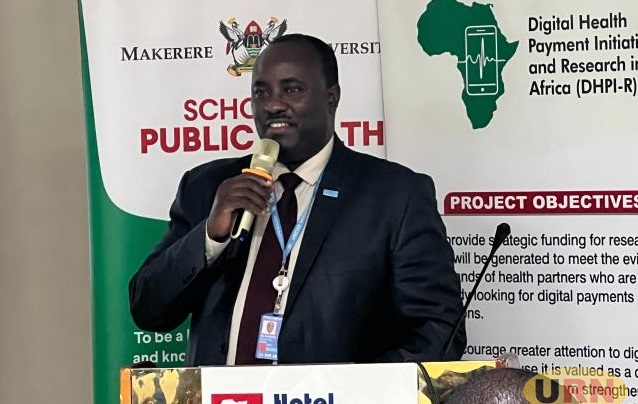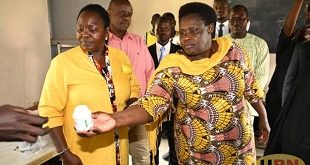
Kampala, Uganda | THE INDEPENDENT | Evidence from a study by Makerere University School of Public Health suggests that adopting digital payment for health workers involved in short-term contracts for health campaigns helps eliminate fraud and other challenges associated with handling cash.
Speaking at a results dissemination event, Prof. Peter Waiswa, a researcher at the School and the director of the Digital Health Payment Initiative and Research Project, shared that the three-year study, launched in October 2021, involved randomized controlled trials in 36 districts. Half of the districts used cash payments, while the other half employed cashless methods.
Waiswa noted that the study revealed higher health worker satisfaction in districts where cashless payments were used, with benefits such as timeliness in payments and easier accountability, which significantly reduced financial losses.
Waiswa also acknowledged some challenges, such as the preference for cash handling by some administrators, and the lack of organized databases for different categories of health workers. He highlighted issues such as Village Health Teams (VHTs) not having their phone numbers registered under their names.
In addition to Uganda, the study is being conducted in 11 other African countries, including Cameroon, Ivory Coast, Senegal, DRC, Nigeria, Ghana, Kenya, Benin, Togo, and Malawi. A total of 33 countries across Africa are now using cashless payments for health workers deployed in mass immunization activities and other one-off health campaigns.
Dr. Charles Njuguna, the Acting WHO Uganda Representative, pointed out that while cashless payments offer benefits such as prompt payment to health workers, there was resistance to the innovation in West Africa. He noted that while health workers were happy with the system, officials in ministries of health and local governments were not as supportive.
Njuguna emphasized that such resistance should not happen in Uganda. He noted that WHO first implemented the system in Uganda during the 2022 Ebola outbreak, resulting in reduced delays and theft risks. However, challenges with database completeness remained a concern.
Dr. Daniel Kyabayinze, the Director of Public Health in the Ministry of Health, expressed that the biggest benefit of the digital payment system is that it offers easily traceable evidence of payment. He mentioned that VHTs had sometimes complained about not being paid when, in fact, they had received their payments.
According to Ministry of Health figures, Uganda has processed about 1.5 million payouts through the cashless system, totaling 368 billion shillings paid to various service providers. Across Africa, over two million campaign health workers are now receiving their payments digitally.
*****
URN
 The Independent Uganda: You get the Truth we Pay the Price
The Independent Uganda: You get the Truth we Pay the Price



